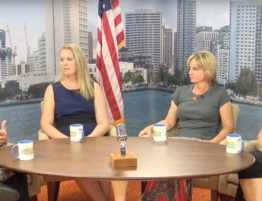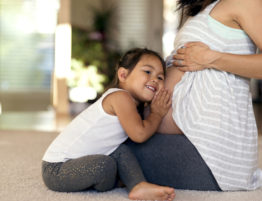Estate planning can be particularly impactful on women. Women need to be well-versed in creating an estate plan for themselves and their family. Why?
Women are more likely to marry older men than men are likely to marry older women. Coupled with their longer life-spans, by age 65 a woman is three-times as likely to be widowed than a man. With women outliving their spouses, they need to have a firm grasp on whatever wealth structure and provisions they have put in place for what happens after their spouse passes away.
Many charitable gift foundations tailor campaigns and development drives to educate married couples, bearing in mind that wives are more likely to ultimately hold the purse strings. Provided the woman is left with sufficient funds (see more on that below) women tend to have the final say on what altruistic provisions they want to have carried out after their death.
Many wives still elect to have their husband make the majority of their financial decisions. Problematically, some husbands do not like contemplating their own demise and will never properly create a structured plan for how their wife should carry on after their own passing – these husbands likely find the thought too morbid or depressing. Later, the wife may be surprised that her late-husband’s drafted plan was best suited for them as a married couple but has no provisions for her, the surviving spouse, upon his death. Suddenly, a grieving wife is responsible for her own financial needs which may not have been properly anticipated.
Additional challenges can arise when a couple appoints the husband as the one who handles a family’s business or investment accounts. It is disadvantageous for only one spouse to actively create an estate plan. At estate planning meetings the drafting attorney may raise a number of important issues. If the wife elects not to attend estate-planning meetings and only her husband has created a will and trust, she may be unaware of poor choices made by her husband. Wives should be present to hear their spouse’s response to tough questions such as, “What is this dubious investment scheme you selected?” or “Where is the liquidity in this business?” The lawyer may advise a wife to put a few accounts in her own name and watch that their joint accounts are sufficiently funded.
If a woman is busy grieving her late spouse, she may be less likely to stop and revise her own current estate plan. This hesitancy or procrastination can create two major problems for widows. First, the family’s estate plan will need revisions to account for the loss of the deceased spouse, and could trigger specific clauses for the surviving spouse. By not amending the plan, the woman could inadvertently derail the couple’s original intentions about how their finances would be structured when the first spouse passes away. Second, grieving widows are a target for untrustworthy professionals. These unscrupulous individuals often present themselves as a savior who can take the difficult and overwhelming decision-making needs off of the widow’s plate. By relieving the widow of the stressful decision-making obligations she has after the death of the first spouse, the widow is grateful and relieved but unwittingly provides an ideal opportunity for this scoundrel to take advantage of her vulnerability.
Women can be less open to conflict with and among their adult children. A mother may be less inclined to make an uneven or lopsided inheritance distribution than a father. These mothers may prefer not to disinherit a child, and will instead make no conflict-provoking provisions in their will or trust (even though they may have that desire). A mother’s displeasure with the notion of her children fighting could prevent her from creating an estate plan altogether, for fear of upsetting her children. However, by not creating an estate plan, her wealth will pass accordingly to California statutory law regardless of wishes or intentions.
Recent studies have found that over 95% of all married couples will need some kind of assisted living help before they both pass away. Many spouses name one another as their health care proxy or appointed agent under a health care power of attorney document. However, it is more likely that the woman will be her husband’s proxy, and then she will need someone else to be her proxy because she will likely outlive her husband. All carefully drafted estate plans should ensure that the married couple not only selects one another as their hospital spokespersons, but also weaves in backup agents and specifications for the health care needs of the surviving spouse.
The points above are just a few of the reasons why women should pay close attention to the details of their estate plan. However, estate plans are extremely important for all couples and families. If you have any questions or concerns about the status or provisions of your plan in particular, please don’t hesitate to reach out to a trusted attorney.


















